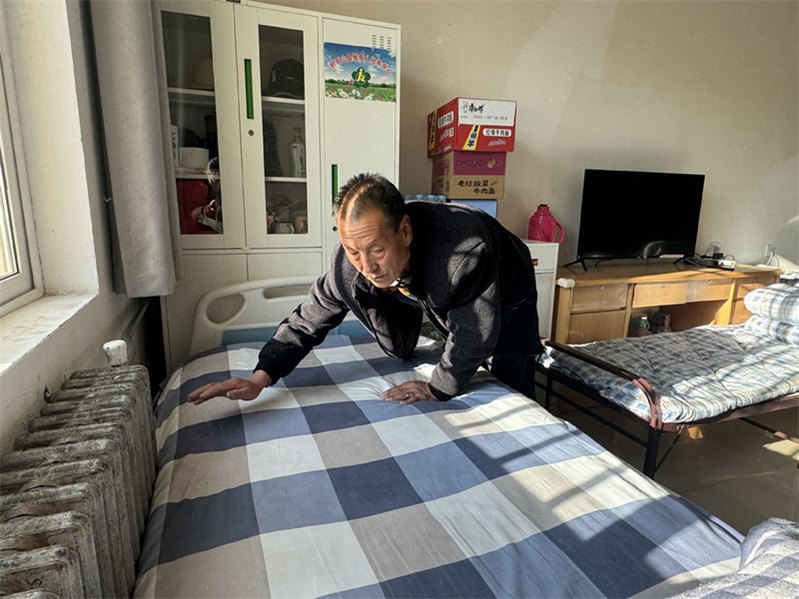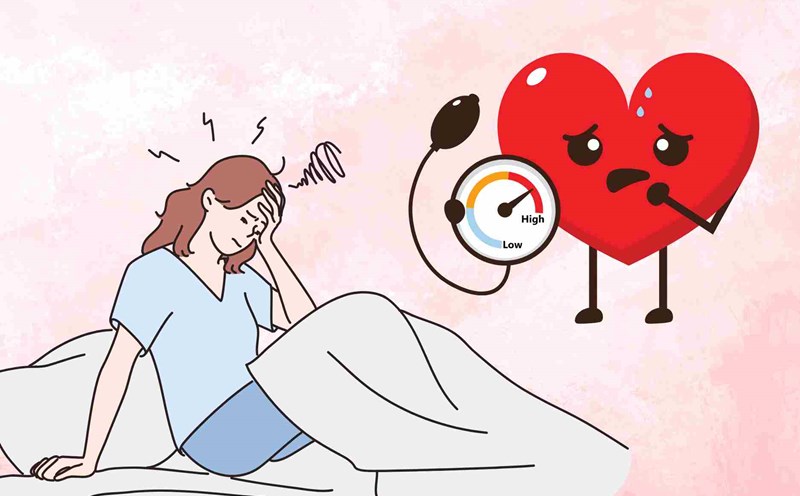Improve the sleep environment
According to Help Guide, the bedroom is a place to rest and help the body recover after a long day. Light, temperature, and noise can all seriously affect sleep in the elderly. So keep the bedroom quiet, dark and cool enough.
Light from lights or electronic devices at night can interfere with the production of melatonin - a hormone that helps people sleep easily. Therefore, don't forget to turn off your TV or computer at least an hour before going to bed and avoid reading on a device with a backlight like the iPad.

Maintain a regular bed schedule
The body is very sensitive to circadian rhythms, so the elderly should maintain regular bed and wake-up times every day, even on weekends. If you feel sleepy early, let your body rest instead of staying up late.
Before bed, you should do relaxation habits such as soaking your feet, reading, listening to light music or meditating. Avoid overusing sleeping pills because they can easily cause dependence and make insomnia worse. Instead, intimacy like hugging relatives can help relax naturally and make it easier to fall asleep.
Learn how to get a good night's sleep
A short but proper day's sleep can work wonders, keeping your mind alert and alert all day long. However, remember that napping does not mean catch-up sleep. The ideal duration is 15 to 45 minutes, enough to recover energy without causing a feeling of fatigue when waking up.
You should take a nap in the early afternoon, avoid sleeping too late because it will affect your night sleep. Choose a quiet, low-light, and airy space so that your body can easily relax and enter a state of rest.
Adjust your diet to support sleep
What you eat at night can be a silent "enemy" of sleep. Limit caffeine after 3pm even in tea, chocolate or soft drinks. Although alcohol can make you sleepy initially, it will disrupt deep sleep later.
If you feel hungry, a snack such as warm milk, yogurt or a little low-sugar cereal can help your body relax. Avoid eating too much refined sugar and starch because they can easily wake you up in the middle of the night. In addition, do not eat too much or spicy food before bed, and try to limit drinking water about 90 minutes before bedtime to avoid waking up many times during the night.
Increase appropriate physical activity
Elderly people should exercise, especially gentle aerobics, which is great for improving sleep quality. Even when the elderly have difficulty moving, there are still many suitable activities such as swimming, water sports, light dancing, golfing or walking.
A study at Northwestern University (USA) showed that people who do 4 aerobics sessions per week significantly improve sleep duration and quality, while reducing symptoms of depression and increasing alertness during the day. The elderly do not need to sweat like an athlete, just need to move gently and regularly is enough to " thuc up" the body to enter a healthy sleep cycle.
Reduce mental stress before bed
Many elderly people often wake up in the middle of the night not because of noise or pain, but because their minds are still busy with anxiety. Psychological stress is a common cause but is easily overlooked in insomnia.
To overcome this, the elderly can write a diary before bed to relieve their worries, take notes on what needs to be done and tell themselves to handle it tomorrow. Listening to light music, reading to relax or chatting with relatives also help calm the mind.
If you wake up in the middle of the night and have difficulty falling asleep, take a deep breath, meditate or read in low light. Avoid bright lights and absolutely do not look at your phone. If insomnia persists, record your sleep log and consult your doctor for timely support.











